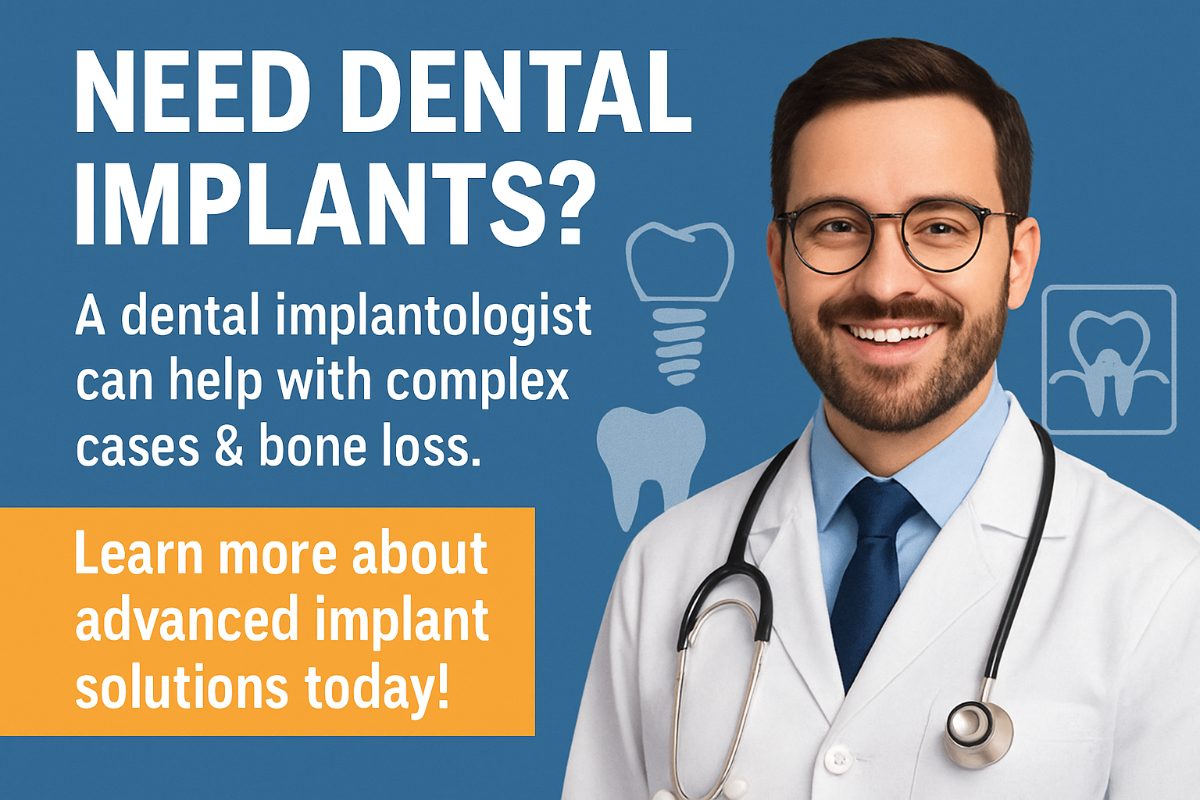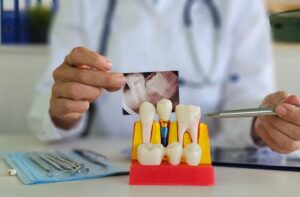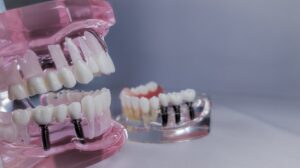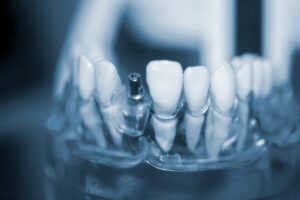A dental implantologist matters when you need implants that are built to last. For simple implants, many dentists do fine work. But for complex cases — failed implants, severe bone loss, or full-arch restorations — a dental implantologist brings extra training, advanced techniques, and digital tools that improve success and speed recovery. Below we explain what they do and when to choose one.
What is a dental implantologist?
A dental implantologist is a surgeon who focuses on placing dental implants and managing complex implant cases. They plan surgery, handle difficult anatomy, and coordinate restorations with labs and restorative dentists. Their goal is predictable function, long-term stability, and esthetics.
How a specialist differs from a general dentist
Training and certification
Dental implantologists complete extra surgical training beyond dental school. Many pursue fellowships, advanced certificates, and board certification. This additional education improves surgical judgment, complication management, and long-term outcomes.
When to see a dental implantologist
See a dental implantologist if you’ve had implant failures, have severe bone loss, chronic infections, or unusual jaw anatomy. If a general dentist says your case is high risk or “not possible,” a dental implantologist can evaluate alternatives and offer advanced solutions.
Advanced solutions a dental implantologist can offer
Options for patients told they “have no bone”
Rather than long grafting, specialist surgeons can place zygomatic, pterygoid, transsinus, or subperiosteal implants. These options attach to different facial bones and can avoid extensive bone grafting, shorten treatment time, and let patients get functional teeth faster.
Full-arch and All-on-X treatment planning
For full-arch cases, precise planning is vital for function and looks. A dental implantologist maps implant positions, angulation, and occlusion so the final prosthesis is stable and esthetic. They coordinate temporary teeth and final restorations for predictable results.
Why digital tools improve implant care
Imaging and planning
CT scans, facial scanners, intraoral scanners, and photogrammetry let a dental implantologist plan in 3D. These tools show bone volume, nerve positions, and soft-tissue contours so the surgery is safer and the final smile fits better.
Surgical guides and faster restorations
Digital surgical guides help place implants exactly where planned. A full digital workflow speeds up temporary and final restorations, improves fit, and often reduces chair time and recovery.
What to expect during the implant process
Consultation and imaging
Expect an exam, CT scan, and a clear treatment plan that covers options, timeline, and costs. A dental implantologist will explain risks and whether same-day or staged care is best for you.
Surgery, temporary teeth, and follow-up
Some patients get same-day temporaries; others have staged healing before final crowns. Follow-up visits check healing and function. Your implantologist coordinates with your restorative dentist for the final prosthesis.
Why choose Dr. Michael Fioritto — a board-certified dental implantologist
Dr. Michael Fioritto is one of roughly nine board-certified implant specialists in Ohio. He treats complex “no bone” cases using zygomatic, pterygoid, transsinus, and subperiosteal implants and uses full digital workflows (facial, intraoral, photogrammetry). He teaches local dentists All-on-X digital workflows, treats out-of-state patients with one-day pre-op visits, and offers free consultations and CT scans.
Questions to ask a dental implantologist before you book
Ask about success rates, experience with your case type, which implant systems and alternative implants they use, details of their digital workflow, travel and postop plan if you live out of town, and financing options.
Closing / Call to action
If you’ve been told implants aren’t possible, schedule a free consultation and CT scan to see if a dental implantologist is the right choice. A specialist can offer options you may not have known existed and a clear plan to restore your smile.






